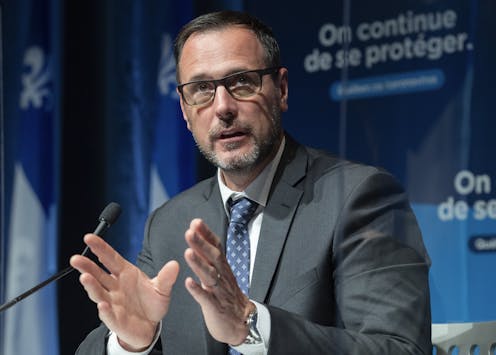
Our trust in those around us is often challenged.
How our elected leaders have handled the pandemic makes many of us wonder whether we can trust them and the government. The “freedom convoy” occupation lead us to question our trust in police. The constant stream of misinformation makes us worry about which experts we can trust — including within the medical community. Rising inequalities have us question our economic system and those at its controls.
Trust is essential in our interactions. It refers to how we consider whether someone will behave predictably, with ability, benevolence and integrity. We consider someone trustworthy when we see them as capable of handling situations, considerate of the well-being of others and uninfluenced by conflicting interests.
Trust involves what we know about others and how we feel about them. In other words, trust has a cognitive dimension anchored in our knowledge and an emotional dimension grounded in our feelings.
As our knowledge and feelings evolve, so does our trust. We might trust someone today but not tomorrow if what we know and how we feel changes. As an associate professor at Concordia University, I research organizations, including how trust works. Here’s how our trust evolves as our knowledge and feelings change.
Our knowledge about others evolves as situations unfold, and we gather more information. For example, we observe how the pandemic is handled by government and organizations. Over time, we learn about practices they have adopted (or failed to adopt) and about the underlying priorities and values. We observe what leaders have said and done, which helps us conclude how able and benevolent they are and how much integrity they have.
Québec opening up
Conclusions about others feed into our willingness to trust. For instance, in Québec, a debate is ongoing about public health protections, many of which are removed, including vaccine passports.
However, those dealing directly with the pandemic, including physicians and scientists, caution that the pandemic is not over, warn about the many things we still need to learn about the coronavirus and how lifting restrictions may happen too early.
We realize the discrepancy between what the government says (like protections aren’t as needed) what science says (like the pandemic is not over). As these discrepancies accumulate over time, they shape what we know about the government and can erode our trust by making us question leaders’ ability, integrity and benevolence.

Feelings and worries
Our feelings evolve too as circumstances change, and we experience how others react.
We experience how the pandemic is dealt with by our institutions, including the government. Over time, we experience the impact of practices recommended and required by leaders. We deal with the emotional side of this impact, including stress, exhaustion, burnout, fear and anger, which add up.
Our emotions feed into our willingness to trust institutions. When we feel leaders cannot empathize with our experiences, we question how much we can trust them.
During the Québec reopening debate, teachers have questioned the government’s empathy, notably for their working conditions that they feel, in many cases, are unsafe (such as the lack of ventilation).
Teachers have spent two years dealing with the pandemic’s effects on their daily lives, including the ways it affected their teaching and their ability to keep their classrooms safe. They may feel overlooked in these experiences and sense that the government isn’t listening to them.
The distance between how we experience our realities and how institutions see these realities grows over time, contributing to how we feel about institutions. It erodes trust when the distance between our experiences and decisions at the top widens, making us question leaders’ ability, integrity and benevolence.
Trust evolves, erodes but can be nurtured
This is how our trust evolves. We accumulate knowledge and feelings about our experiences, including how institutions — like the government — shape these experiences. Our knowledge and feelings guide us in how we view institutions. Trust can erode when we realize there are discrepancies between what we know or experience and what institutions tell us.
And the erosion of trust has consequences. For example, if teachers lose trust in the government and how it handles school safety, they may become disconnected from their work, leave their jobs and even switch industries.
But how can we nurture trust?
Given the harmful consequences of trust erosion, leaders must consider how they can maintain trust. And the two trust dimensions, knowledge and emotions, can provide a helpful guide.
Leaders can act on cognition, through communications that are based on science and respectful of their constituents’ knowledge. Or they can act on emotions and show empathy for what others are going through. They can reach out, listen and, when they make their decisions, they can consider those affected.
Claudine Mangen receives funding from the Social Sciences and Humanities Research Council of Canada.
This article was originally published on The Conversation. Read the original article.







